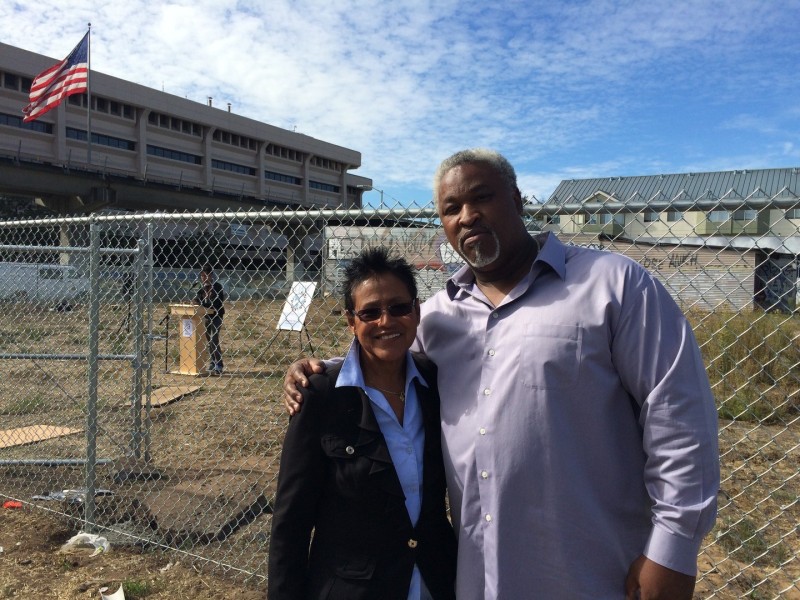Pull up to the corner of Seventh and Campbell streets in West Oakland and you’ll find a vacant lot, overgrown with weeds and strewn with trash, broken glass, empty spray-paint cans, a tire. Graffiti covers the fences and walls that border the lot, and every few minutes, a BART train rumbles overhead.
But Elaine Brown sees something else, including an urban farm and a high-rise housing development employing the formerly incarcerated.
Brown, head of the nonprofit organization Oakland & The World Enterprises, and Alameda County Supervisor Keith Carson have entered into a license agreement with the city of Oakland to develop the lot into an urban farm, owned and operated by by the former inmates. Oakland Mayor Jean Quan helped them acquire the vacant lot. To realize their full vision for its development, they still need millions of dollars.
But first, they’re going to clean up the lot and start on the farm, which will be owned and operated by former prisoners and other people who have trouble finding jobs. The group is still raising the funds to build affordable housing on the lot, but Brown is optimistic.

